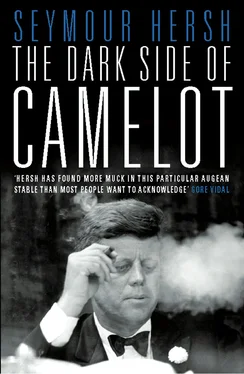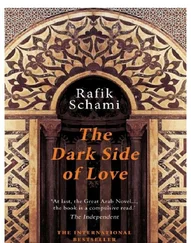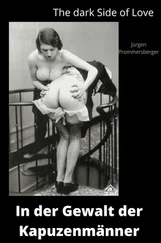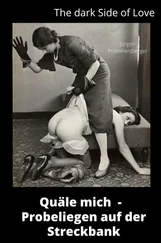Tyler Kent, obsessed with hatred for Kennedy, lived in obscurity after the war as a gentleman farmer in rural Maryland. The FBI files on his case remained secret until 1982, when the British journalist John Costello, an expert on World War II history, obtained them under the Freedom of Information Act. Costello, who died in 1995, also obtained scores of State Department documents on the Kent affair, including many of Ambassador Kennedy’s cables to Washington. Costello approached Kent, who was intrigued by the newly released documents and agreed to a series of detailed interviews. In those interviews, Kent is quoted as explaining that his interest in the secret cables had been aroused only after Kennedy ordered him “to make copies of nonroutine messages that went in and out of the embassy for Kennedy’s personal file.” Kennedy also instructed Kent to retrieve all of Roosevelt’s coded exchanges, dating back to the 1938 Munich accord, with Ambassador William C. Bullitt in Paris and with the other ambassador widely known to be avidly anti-Hitler, Anthony Drexel Biddle, in Warsaw. *
The Kent matter languished until later in the 1980s, when Robert T. Crowley, a counterintelligence officer who specialized in Soviet penetrations of the West, retired from the Central Intelligence Agency. “There were a couple of guys left over when I retired, and one was Kent,” Crowley recalled in an interview for this book. “I thought the guy was unstable” and a possible Soviet KGB agent. As a former CIA officer, Crowley had connections. Over the next few years he was able to obtain access to previously unavailable government files on Tyler Kent. The Kent-KGB spy story soon petered out, Crowley said: “Tyler never developed into anything we thought. We couldn’t demonstrate that he was working for the Soviets, or the Germans, or the Italians. He was working for Tyler—and he’s trying to save the United States from Roosevelt. He was everybody’s tool. Just a kooky half-wit.” But Crowley did find documentation, he told me, that convinced him that Kennedy had been assembling a political dossier on FDR, and was using Kent to get access to the potentially damaging Roosevelt-Churchill cables.
In Crowley’s view, Kennedy’s refusal of diplomatic immunity to Kent, thus assuring that he would be held without access to the American press, was a brilliant move. Kennedy made another brilliant move, Crowley said; he arranged to ship his copies of the sensitive and politically incriminating Churchill-Roosevelt cablegrams to America. Edward Moore, once in America, could retrieve the copies and prepare for the coming showdown with Roosevelt. The cablegrams, Crowley told me, “put Kennedy in a marvelous position with FDR. He had him in a spot and could possibly deny him his reelection. He had a knife.”
Joe Kennedy declared war on the White House. Historians agree on what happened next: Kennedy arrived in Washington on the evening of October 26, amid much press speculation that he was planning to endorse Wendell Willkie, the Republican candidate. The election was only ten days away. Kennedy’s flight from London had been delayed for days by poor weather, and en route he received a series of urgent and confidential messages from FDR inviting him to dinner at the White House. The two men talked early on the twenty-sixth—Kennedy was then in Bermuda, on the last leg of his Pan Am Clipper flight to New York—and Roosevelt’s side of the conversation was overheard by Lyndon Baines Johnson, then an ambitious young congressman from Texas, who happened to be visiting the Oval Office. “Ah, Joe,” the president said, “it is so good to hear your voice. Please come to the White House tonight for a little family dinner.” Over the years, Johnson would dramatically tell many journalists what happened next: FDR slowly drew his hand across his throat and added, “I’m dying to talk to you.”
Exactly what took place at the Kennedy-Roosevelt White House meeting may never be known. In Joe Kennedy’s much-quoted version, as relayed by him to Arthur Krock, FDR was at his most charming with Kennedy and his wife, who had been personally invited by Roosevelt to join her husband at dinner. There was the inevitable praise for Kennedy’s children and a presidential willingness to listen to Kennedy’s complaints about the way he had been ignored and mistreated while in London. Roosevelt claimed, according to the account in Krock’s memoir, that “he had known nothing about these matters; the fault lay with the State Department.” FDR’s sweet-talking prevailed, according to Krock. Temporarily smitten, Kennedy agreed to make a radio speech calling for Roosevelt’s reelection.
That explanation, given the well-documented and high level of hostility between the president and his ambassador, is simply not believable. In later years, Kennedy provided at least two different reasons for his turnabout. He told the journalist Stewart Alsop that the president had held out the hope that a strong endorsement in the radio talk could lead to FDR’s backing for a Kennedy presidential campaign in 1944. And Kennedy explained to Clare Boothe Luce, wife of his longtime friend Henry Luce, publisher of Time magazine, that “we agreed that if I endorsed him for president in 1940, then he would support my son Joe for governor of Massachusetts in 1942.” Kennedy and Roosevelt viewed each other as consummate liars, so a presidential promise of future support—even if one was, in fact, proffered—would have meant little.
A far more compelling reason for Kennedy’s decision to make the radio speech was provided by Winston Churchill’s son, Randolph, who in 1960 privately told the New York Times columnist C. L. Sulzberger that MI5 had provided Roosevelt with a collection of intercepted Kennedy cables and telephone calls in which the ambassador was critical of the president. The cables were passed to Brendan Bracken, Winston Churchill’s close friend and adviser, who, with Churchill’s approval, passed them along to FDR’s trusted aide Harry Hopkins. There is yet another version, which Joe Kennedy told Harvey Klemmer, who was surprised, as were many in London, at Kennedy’s last-minute endorsement of the despised Roosevelt. In his Thames TV interview, Klemmer recalled a later conversation with Kennedy about the radio address. “I said the press was speculating that FDR had dragged out an old tax return and said, ‘Joe, you wouldn’t want me to show this to the public, would you?’ And [Kennedy] said, ‘That’s a damn lie. I fixed that up long ago.’ So,” noted Klemmer, “there had been a tax mix-up at one time or another.”
Whatever the truth, the president and his ambassador had become two scorpions in a bottle: Kennedy could damage and perhaps destroy Roosevelt’s reelection chances by making public the Tyler Kent documents; Roosevelt, with Churchill’s help, had assembled an equally lethal dossier of telephone and cable intercepts. The full story lies buried, perhaps forever, in classified U.S. and British archives.
Kennedy’s half-hour radio speech on October 29 reassured Americans that the United States “must and will stay out of war.” No secret commitments had been made to the British by the Roosevelt administration, Kennedy said. And as for the oft-stated charge that the president was attempting “to involve this country in world war … such a charge is false.” The speech was jolting to those who knew what Kennedy really understood about Roosevelt’s war policy. In his memoirs, Arthur Krock noted: “The speech was out of keeping, not only with the wholly opposite view he had been expressing privately (to me, among others), but with Kennedy’s earned reputation as one of the most forthright men in public life.”
Three days after the election, Kennedy self-destructed. In an interview with Louis Lyons of the Boston Globe and two other journalists, he essentially declared that Hitler had won the war in Europe. “Democracy is finished in England,” Kennedy told Lyons. “Don’t let anybody tell you you can get used to incessant bombing. There’s nowhere in England they aren’t getting it.… It’s a question of how long England can hold out.… I’m willing to spend all I’ve got to keep us out of the war. There’s no sense in our getting in. We’d just be holding the bag.” The story made headlines. The American response was devastating for Kennedy: thousands of citizens wrote Roosevelt urging him to fire his defeatist ambassador. The British took it in stride, more astonished by Kennedy’s suicidal indiscretion in granting the interview than by its substance. Kennedy’s departure from London, during the Battle of Britain, with its nightly bombings and aerial dogfights, was seen by many as a cowardly retreat under fire. T. North Whitehead, one of the American specialists in the British Foreign Office, filed yet another caustic note in the office’s Kennediana file: “It rather looks as though he was thoroughly frightened when in London and has gone to pieces in consequence.”
Читать дальше












